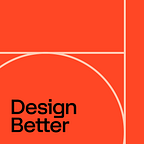It’s a challenging time in tech right now. Chances are, if you haven’t been directly affected by the layoffs, you know someone—or many people—who have.
In today’s episode, we’re welcoming back Judy Wert, along with her son and colleague Daniel. At their executive search firm Wert & Co, they’ve guided many leaders through navigating career changes. We discuss the layoffs, and strategies for dealing with changes in your own career when the environment is as difficult as it is right now.
We’ll also discuss what skills you need to cultivate as an individual contributor if you want to advance your career, and the ins-and-outs of transparency when it comes to salary policies. Thanks for joining us, and we hope it’s helpful wherever you are in your career.
Bios
Judy Wert
Judy has been working with the leadership of innovative companies for over 25 years. She has earned an international reputation as a pivotal force in executive search. A trusted authority in the world of design and business, Judy is also known for bringing an added dimension to her work—a humanistic approach—fostering deep relationships through empathy, intuition, and curiosity.
Daniel Wert
With an intimate understanding of venture-backed start-ups, Daniel has developed expertise in recruiting at scale, executive search, and in the people operations that hold businesses together. He has spent the last decade in-house, building companies, managing cross-functional teams, and coaching executive leaders to better understand the value of both people and design.
Summary (Generated by ChatGPT 🤖)
Judy and Daniel Wert discuss the impact of the recent rounds of layoffs in the tech industry. They talk about the reasons behind the layoffs and how they have been compounded by various economic and sociological forces, including Covid-19. They also discuss the importance of being positive and authentic when sharing your experience of being laid off, while avoiding too much negativity about your past employer. They suggest taking time to reflect, research opportunities, and network as important steps to take during this transition period. The hosts conclude by emphasizing the need for balance when posting on social media, as too much information or self-promotion can be counterproductive.
Highlights
💰 The layoffs have been compounded by various economic and sociological forces, including Covid-19, overhiring, and inflated valuations
🤝 Networking and researching opportunities are important steps to take during the transition period after being laid off
😃 Being positive and authentic when sharing your experience of being laid off is important
🚫 Avoid being too negative about your past employer
🤔 Take time to reflect and consider your options
📱 Be mindful of how you use social media to share your experience, and balance self-promotion with helpful content
Transcript
Judy Wert (00:02):
Take time to heal a little bit. And before you put yourself out there in a post soliloquy, ask yourself, is this post gonna be helpful or does it belong in your journal? But I think we have to have some moderation because everyone's hurting. And then it starts to be a cycle of negative energy in a platform where it can be positive.
Aarron Walter (00:30):
Welcome to season eight of the Design Better Podcast. This season we're doing things a little differently. We're going to address the elephant in the room. The tech industry has seen many rounds of layoffs and we're talking to Judy and Daniel word of Word and Co about how to navigate these uncertain times. Then we'll jump into interviews with people like Tony Fadell, who co-invented the iPod and iPhone. Kevin Bethune, the author of Re-Imagining Design, Matt Mullenweg, founding developer of WordPress and the CEO of Automattic and George Petschnigg, the SVP and Head of Product Design at the New York Times.
Eli Woolery (01:11):
Now we're already looking ahead to the next season where we're going to air a mini-series on the history of design. We'll include interviews with folks like Lisa Demetrios, granddaughter of legendary designers, Ray Charles Eames and Chief curator at the Eames Institute, Barry Kates, author of Make It New, the History of Silicon Valley Design, and Paula Sher, the claim graphic designer and partner at Pentagram.
Aarron Walter (01:34):
We want to thank you for joining us on this journey for the past seven seasons. If you're a new listener, we encourage you to check out the back catalog@designbetter.com slash podcast. We're truly excited about where the show is headed and we're committed to featuring guests who inspire and inform your creative endeavors.
Eli Woolery (01:53):
Before we get to the show, a few words from our sponsors.
Advertiser (01:59):
With Free Hunt Buy Envision, we've built a best in class visual collaboration platform used by thousands of enterprise customers, inclusively priced for the whole organization at 50% the cost of Miro and mural. And now with the intelligent canvas allowing teams to maximize their impact by adding int intelligence, automation and connection to the canvas. Try Freehand buy Envision today for free@freehandapp.com.
Aarron Walter (02:30):
This episode is brought to you by Fable who make it easy to build accessible inclusive products. Learn more@makeitfable.com and later on in the show, it's a challenging time in tech right now. Chances are if you haven't been directly affected by the layoffs, you know someone or maybe many people who have. In today's
Eli Woolery (02:58):
Episode, we're welcoming back Judy work along with her son and colleague Daniel at their executive search firm Wharton Co. They've guided many leaders through navigating career changes. We discuss the layoffs and strategies for dealing with changes in your own career when the environment is as difficult as it is right now.
Aarron Walter (03:15):
We'll also discuss what skills you need to cultivate as an individual contributor if you wanna advance your career and the ins and outs of transparency when it comes to salary policies. Thanks for joining us and we hope it's helpful wherever you are in your career. Judy and Daniel work, thank you so much for joining us on the show.
Daniel Wert (03:39):
Happy to be here.
Judy Wert (03:40):
Thank you for having me again.
Aarron Walter (03:43):
Yes, it's great to have you back. So we wanted to talk about what's happening in the industry right now, the software industry, tech industry more broadly. There's just a lot of layoffs that are happening and uncertain economy. It seems like every day I wake up and I listen to the news and there's another announcement about some round of layoffs. So I wonder if you could just set the stage and maybe catch listeners up on what's happening in the tech industry right now.
Daniel Wert (04:12):
Well, I think we're definitely seeing, and as you alluded to, companies rounding down from uncertain to conservative, you know, the last few years between Covid and all the supply chain issues and asset bubbles, war energy dependencies. I mean it's been a a bit of a perfect storm of economic and sociological forces and compounded by it all being in the wake of over-hiring inflated valuations, just a decade of bullishness. There's always cycles to this and the pendulum swinging back and a bit of an overcorrection seems to always be inevitable. And you know, when you see one or two layoffs happen, especially by those large companies, kind of provides PR cover for everyone else to feel like now's the time to do the same and that band-aid's been ripped off unfortunately. So it's Tourette
Judy Wert (05:01):
Right to add to that, I mean I don't, we don't wanna be Debbie Downers here, but it's likely going to get worse before it's going to get better. But I do believe this is a time where the building blocks of character and creativity will emerge because I think history shows that resilient people we're resilient, cultures we're resilient governments. That's a question mark, but <laugh>, I think resiliency will bring us back to where we need to be, but I think the coming months are gonna be challenging. Interesting and humbling.
Eli Woolery (05:39):
Judy, just given your historical perspective, you've been through some of these cycles before, what do you think is different this time and then maybe you could talk a little bit about how much worse you see it potentially getting.
Judy Wert (05:50):
Well, I think the biggest difference is that we had a global pandemic that changed so many things for people, but there is perspective in, you know, if we think about kind of history, I don't know Daniel, maybe you wanna talk a little bit about what we had chatted about yesterday just as perspective on the yesterday versus today. And I think hopefully some of these realities will give people the hope that we need to embrace.
Daniel Wert (06:29):
I might make the argument that there's more in common with the past than there is a difference, but if I can think of one big difference compared to even the most recent recession, if I may use that word. You know, if we think back to the housing collapse, uh, 2007, 2008 nine, this time around we have Twitter and just the way that information spreads, you know, over the years. So the past century when layoffs happened, maybe you hear about it in the news, you read about it in the paper, now it's, you know, the revolution's kind of televised <laugh> and everything feels 24 7. You feel the emotions of the layoffs. I think a little bit more viscerally these days just because individuals are posting, they're grief, people are mourning in public, that definitely feels different.
Judy Wert (07:15):
This is not an isolated situation anymore. Social media has really allowed people to voice their fears, voice their anxieties. I think this existed before, but I think we're hearing it like Daniel said, 24 7. And I think it's exhausting on so many levels and yet it's also kind of beautiful to see communities come together and to try to be helpful. And so there's a double-edged sword between having that loud speaker 24 7 on no matter what platform you go to look at, but people are stepping up and helping each other and because it, the pandemic was global, there's kind of a a new level of collective empathy that I think has emerged that maybe we felt episodically in the past or maybe it existed but we just didn't hear about it. And I think community is such a beautiful thing and I think that's gonna be able to carry us through to the other side of the mountain that we're we're in right now.
Aarron Walter (08:24):
I think it's interesting to see people openly say like, Hey, I've been affected by layoffs. Some folks like come in and support in you know, kind of softer ways of like, Hey, I feel your pain in more concrete ways. Like, hey, I'd love to make introductions for you. Is there a like a right way and a wrong way to put yourself out there to let people know, hey, I'm looking or I've been affected by this really emotional traumatizing situation of losing a job in a difficult time. Like what's the right and wrong way to do that?
Judy Wert (08:59):
I have mixed feelings about how much is being put on social media. I think there is a delicate balance of t m i, too much information. I appreciate the posts where people are just sharing that they're available for help. I'm not as clear that it's the right place to open your entire Pandora box because I think there's a time and place for that. But I think putting yourself out there is okay, I do think that there is a little bit of a script. I'm humbled, I'm honored, I'm suffering. You know, I think some of these scripts need to go away and people need to be true and authentic. And so it's interesting. I was thinking about a candidate that had never been laid off before in her entire career and she wasn't posting on social media up until this period of time when she lost her position at a very major company.
(10:01):
And I said to her, I said, you know, you're posting almost every hour now about some thought leadership, something to show that you're out there and to make yourself known. And it almost is over posting because that's not what your behavior was before. And so I think it's good to share thought leadership and to be engaged in the community and to wake up, but I think you need a moderate diet in terms of how much you're posting. I'm also struck by, reminds me of Facebook when somebody announced that they passed away, that people had a like on that posting and I'm like, why are you liking a posting where somebody passed away? And I feel like there's a lot of recruiters and hiring managers liking these postings so that they can, maybe it's the, I'm glad there's a support of emoticon, but the liking, it feels almost self-promotion. So I think we have to be careful about self-promoting and looking for attention. I think people have to find a, their voice but be sure it's not too noisy
Aarron Walter (11:17):
And probably not share too much about what happened inside the company. Right,
Judy Wert (11:22):
Absolutely.
Daniel Wert (11:24):
You know, one of the things we say often to candidates as we prepare for interviews together is that you should be positive about the future but not negative about the past. There's that old quote, people don't remember what you say but how you made them feel. And I believe that's very true when interviewing, you want your audience to walk away from every conversation feeling positive. You want the emotions to be aligned with your future, your success. And, and so if you're talking bad about your past employer or venting out loud, people won't remember the specifics of what you said, but they will remember the negativity. And so being positive is for sure an important thing to be mindful of. If you are going to post, if you are gonna put yourself out there and as Judy said beautifully, you know, it takes balance because having said everything we just said, it is important to put yourself out there.
(12:20):
Being in a job search requires vulnerability. You can't, you know, hide behind a force field and cast a few lines out and hope that one of 'em lands. You have to be proactive and you and you really do need to put yourself out there and and expect rejection. But again, you have to balance that with what's too much. How do I stay positive? If you can't be positive in the moment, maybe that's a sign that you should take a step back, sharpen your ax, decompress a bit, <laugh>, not jump straight into a job search if things are a little bit too raw still cause people will feel it.
Judy Wert (12:53):
I say that a lot to people. I said, why don't you go, you know, take a week sabbatical, give yourself time, don't jump least at least. Well you may not have a choice, right? Your sabbatical, sure you can afford forced sabbatical, but take time to heal a little bit and before you put yourself out there in a post soliloquy, ask yourself, is this post gonna be helpful or does it belong in your journal? And I think there are places to express yourself and to think about that. Everybody needs to think about that. Is this gonna be a helpful post? Will this be a productive opportunity to share something interesting? I actually think more and more people should be doing more direct messaging than they should be just posting otherwise. You know, let's take God bless LinkedIn. I have nothing but admiration for their ability to be here right now for people to have a workplace loudspeaker. But I think we have to have some moderation because everyone's hurting and then it starts to be a cycle of negative energy in a platform where it can be positive.
Eli Woolery (14:08):
That idea of taking some time, it really resonates with me. My last job I was laid off from was a, a small startup and I got the news the day after my son was born <laugh>, which was a bit of a shock. Oh boy. With my second kid coming in and my job gone. So, but it ended up, you know, thankfully we had some savings. I know not everybody's in that position, but I was able to take some time and think about what do I really want to do next? And maybe one of you could talk a little bit about what are some important things to think about during that transition? What is important things to do? How can you set yourself up for success?
Judy Wert (14:40):
One thing is to start to research what opportunities are out there, right? Plain and simple. Like start to do your homework, start to network through your connections, through your past colleagues. Make sure your tools of the trade are in good form. Be it a website, a PDF portfolio. Be clear about your narratives and your intentions. You know, just get clarity. Really reflect, almost remove all the noise of what other people are doing and just say, what do I need to do? How do I need to show up? Who do I need to reach out to? Who do I wanna reach out to? And take the bold step forward, but don't just jump in. Jumping in inevitably lacks a level of clarity and understanding time is just so important in this moment to, you know, get comfortable with your situation and then think about what's next with a level of hope and action.
Aarron Walter (15:50):
Is this a really good point Judy? Because in a moment of crisis, our instincts are to take action. Don't just sit there, do something, go apply to 15 different jobs even if they're not exactly what you want to do. So that reflection I think is a really key point for people.
Daniel Wert (16:08):
Definitely you know, as much as one can. And then obviously there are life constraints and finances to be mindful of, take a step back so that you can be deliberate and measure twice and cut once. And I I, my view on this is when times are good, often candidates, prospects, applicants, they go wide and shallow, they'll apply to many companies, they won't do a ton of research on each, it'll be a little bit of a numbers game. They'll have a spreadsheet where they figure out pros and cons and plus and minuses and you know, they'll end up with a few offers and they'll make a decision. That's not how this will work for a lot of people this time around. And instead of going wide and shallow, go deep and think of the few companies that you really care about. Prepare research, go all in.
(16:55):
And of course you'll have to consider safety schools so to speak and reach schools and the opportunities in between. But if you can stagger it a bit so that you don't spread yourself too thin and every opportunity that you go after, you can make it count. Cuz in this drop search cycle, first impressions are everything. You'll only be able to apply once. And so every time you submit an application holistically across a portfolio, your website, LinkedIn, your resume, get your narrative together, prepare your materials and you know, plot forward very methodically. Uh, because again, you only get one shot at that application in this cycle and there's gonna be a lot of other people applying.
Judy Wert (17:37):
I think this is also really a truly a time of reflection for many people and I think being able to define what your non-negotiables are, like Daniel said, don't just jump in to the next thing but really think this is a time, this is a gift of time to think about what really matters to you. You know, do you want a job that is hybrid? Do you want a job where what's most important is who you're gonna learn from. Do you want a job where maybe the equity package isn't as outstanding as they have been in the past, but you know the work is just everything that you wanna do and you know, where do you wanna live? Who do you want your colleagues to be? How do you want, you know, your work life balanced to come together this time around? And I think it's a really important time to be thinking about these things and try not to live in this abyss of fear and impulsivity, but bring in a level of patience and endurance and pragmatism.
Daniel Wert (18:48):
Having said that, we do think it's important that people work backwards in their search from what they want. Ideally it's still a good thing to dream and have ambition and to be optimistic and in a perfect world, I don't know what that is, but <laugh> pardon in the expression. But in the perfect world there are gonna be these seven things that you know you want out of this next opportunity. And the four things that you know you don't want but layering pragmatism on top of that, if you could only check one or two boxes, what would those be? If you can only get a couple things out of this next chapter, know your next job won't be your last job. So if you get a couple things out of this next chapter, there's opportunities to check future boxes later.
Eli Woolery (19:32):
There's probably another category person out there that hasn't been laid off but is maybe afraid that ax is gonna fall soon or have seen colleagues go and where something similar might happen. Maybe it's similar advice to those types of folks, but is there anything different that you'd say to them, those that are at a company where they fear they might be let go than your future?
Judy Wert (19:50):
I think the advice will be fairly similar, but luckily they aren't yet going to have to look for a new job in that moment. I think they need to look internally in their community and make sure to be building relationships, reaching out to the people, getting honest feedback about how they're doing, spend time with your manager, how they can improve. This is a time to like grow and learn and I think the, the whole culture of mentorship has really emerged and it's beautiful. I think this is a time to be helping other people and you'll learn from that even if you have your job. So I think the rules apply
Daniel Wert (20:39):
To that end. And to answer the question, don't you know, don't put your head in the sand, right? You have a job, yes, others are going through a tough time. Reach out to help and that might come back around to you if you find yourself in a similar position. But having said that, and Judy will hate me for using a sports analogy, it'll be the only one of the day I promise. But I I, I do think it's important to play till the whistle and what that means is you can hedge your bet a little bit, you might still have your job, you might be worried about an impending layoff and so you might start a search but you still have coworkers that are leaning on you, you still have customers that are relying on you, you're still out of business, you probably have equity in that company that you wanna see succeed even if you're not there anymore. And so play to the whistle, you know it's okay to hedge your bet and be pragmatic but don't mail it in, you know, and if you feel the layoff coming, just give it all you've got until you have nothing left to give and until your last day.
Judy Wert (21:40):
The other thing that I'm gonna just add, and I firmly believe this and I think this is a value for Wharton Company and it always has been, networking should not happen episodically networking and engaging with the community and building your relationships and returning calls where people have graciously reached out to you for an opportunity, don't ignore that peer, don't underestimate the value of that throughout your career for these exact moments in time when you really need it. I can think of many times where I'll have reached out to somebody and they'll be like, I don't need a recruiter. I have, I've never had to use a recruiter before I have a job. And you know what? Those people come back 10 years later and write me and they've been laid off and I will, you know with love remind them. I remember when you said you don't need a recruiter or you know, no thank you or they didn't even return the email. Now I get people are busy, they can't return every email, but practice your habits now but don't give those habits away when we return to some level of normalcy, this is the time to like develop those rituals, finding your community, finding your people, reaching out to people who have earnestly reached out to you with something that's worthwhile. I'm not talking about spam, I'm talking about legitimate resources that are reaching out to you. And I think this is advice for people employed and people who are unemployed. I believe firmly in strategic dialogue for the future.
Aarron Walter (23:21):
Oh that's great advice. And the folks that we see making the fastest transition to new roles are the ones who have really rich networks of people that they can talk to
Judy Wert (23:31):
Or connect yourself to people with those rich networks. Yeah, because this is gonna happen again. I mean Daniel and I were talking the other day about kind of zooming out and thinking about history and sort of this is a period where we're gonna usher in new innovations and new companies and new founders and this is going to happen. If you think about 1906 to 1910, we had a big earth cake. Uh, 1973 we had an oil embargo. 1995 we had a.com bubble. Out of the bubble came Amazon. Out of the oil embargo came Microsoft. Out of the earthquake came General Motors out of the housing collapse in 2009 came Airbnb, slack, square, Uber, Venmo. So we are going to see some incredible new innovations network now because these new companies are going to emerge and you wanna be connected to them.
Daniel Wert (24:34):
I don't think we expect individuals to find solace in that, but it is true. Zooming out history has shown us that this chapter will usher in some pretty incredible innovation and generational companies. It's having time and again and it will happen again. <laugh>.
Judy Wert (24:52):
Yeah, my hope during this period of time and I think it comes, I mean when I think back to September 11th for instance and the amount of people that lost their jobs and it was this deep sadness at magnitude in New York, we felt it, you know, every day for a year. But I think what came out of that was kind of a newfound reverence for humanity and the greater good. And I also think this is an opportunity to be thinking about careers that will tap into the greater good, the future of climate, the future of education, the future of medicine, the future of finance. I think there is a future in all of these categories that are going to evolve because of this period of time. And so don't just think you're gonna have to go to one of the big fan companies. These smaller mid-size companies that are emerging are gonna be huge opportunities for people to make a difference. If you think about, you know, these companies were once a baby child, they were a startup, Airbnb was once a startup, Uber was once a startup. So there's gonna be all these new startups that are gonna transform industry and this we should be excited about.
Daniel Wert (26:03):
Absolutely. I saw someone posted the day and I forget who posted this, I wish I could give them credit, but tough times are temporary and it's an important thing to remind yourself that this too shall pass <laugh>.
Aarron Walter (26:20):
We'll return to the conversation after this quick break.
(26:26):
Methodical crafts, coffee and tea for people of all kinds. They've been around and roasting for more than eight years and they are certified coffee nerds. On their site you'll find useful brewing guides that'll teach you how to turn your coffee brewing chore into a beloved ritual and really dial in that perfect cup. I'm a longtime subscriber to the Roaster's Choice subscription and start every day with a cup of methodical coffee. I have to say, without fail every morning when I wake up I am excited to drink their coffee because it is fantastic methodical packaging their website, the entire experience. It's just beautifully designed. Craft a cup that you'll love with methodical coffee by visiting methodical coffee.com and use our discount code design better to get 10% off your first order of coffee or tea. That's methodical coffee.com.
Eli Woolery (27:27):
I've got two young kids who can be a little bit on the noisy side, so my wife and I have gotten used to using closed captions on those rare occasions. When we get a chance to sit down and watch a show together, lots of us have experienced the benefits of products that were initially designed for people with disabilities. From closed captions to dark mode on your phone or laptop to voice, to text to electric toothbrushes. Designing products for all people regardless of abilities, leads to greater adaptability, usability, customization and personalization. With 1 billion people worldwide living with disabilities, fable Engage helps UX teams collect feedback from people with disabilities to help you build more accessible products. Fable Upskill provides custom accessibility training for digital teams to gain skills to build inclusive products. The best digital teams like Shopify, Microsoft, and Spotify partner with Fable to make better products for everyone. We're big fans of Fable and we know you will be too. Learn more by requesting a demo at www.makeitfable.com/design better. That's www.makeitfable.com/design better.
Aarron Walter (28:37):
I'm the sort of person that's always looking for a life hack to live a healthier, more fulfilling life. One thing I've stumbled upon recently is Athletic Greens and their daily supplement called Ag one. I start every morning with ag one in eight ounces of water. It's got all the vitamins and minerals I need to just be healthy and keep my immune system tuned up. Also has prebiotics and probiotics. It's good for gut health, it just makes me feel great and it's a good habit to start every morning, certainly better than taking a whole bunch of vitamin pills that can upset my stomach. I'm a big fan of Ag one and I think it's worth checking out. If you're looking for an easier way to take supplements. Athletic Greens is giving you a free one year supply of vitamin D and five free travel packs with your first purchase. Just go to athletic greens.com/design better. That's athletic greens.com/design. Better to live your best life. Check it out. And now back to the show. So as people are on their search looking for their next role, do you have advice about their strategy? So there's one approach which is to apply, like there's a job posting and you just apply the normal way that most folks do and LinkedIn will show you there's like, you know, 287 people who have applied for this thing. You're going through like an HR department or find who is the hiring manager, like kind of backdoor it, which sometimes works and sometimes doesn't, but what's the best strategy for getting noticed?
Daniel Wert (30:21):
Well, uh, you definitely alluded to one of 'em. When I think about submitting an application, to me an application is inclusive of both the applied button on a career page. Sure that box should be checked, but you should also figure out who the hiring manager is in email. Then you can figure out who your first degree connections are at a company and push for an intro, push for a referral. All of these things together holistically, that's an application. Everything you can do, no stone unturned, that's your application to a company just applying to a career page. To me that's a small part of an application and it's the smallest part because as we know it can be black holes, right? It's, it's a lot of resumes to review by people who are not necessarily tapped into the nuances of of the work or the disciplines of the people submitting these applications. Hiring managers are, while they're busy <laugh>, uh, they're trying to screen these resumes in between meetings and business challenges. And if you just submit an application, you're letting decide
Judy Wert (31:23):
<laugh> for sure. Yeah, I think using your network is probably, honestly your network can include an HR person, it can include a recruiter, but it will, it should include the people that you know that can vouch for you. So I think when you can use your network, you should try to do that. I think there are postings that are worthy of applying to, as Daniel says, but you know, God bless the HR manager, they don't always know how to read a CV between the lines to know that this person might be qualified and a hiring manager is more skilled and nimble to say, oh he doesn't check this box but oh my gosh, look what he's done in his past. So I think making sure you're telling your story, your LinkedIn is your new resume, resumes in and of itself are not enough anymore. Your LinkedIn profile should be clear, it should have the right keywords, it should be well articulated. It shouldn't be a one-liner. Don't assume people know what the company is unless it's an obvious big company. Get your story right then go and network, don't network and then get your story right. Again, it goes back to the impulsivity of just apply, apply, apply. Step back. Do I know what I stand for? Do I know what I did at Job A, B, C, D, get that right And then start to network
Daniel Wert (32:50):
People. Experience your personal brand across a variety of services and touchpoints and you want to think about your personal brand as you would your company's brand or product marketing, right? You wanna make sure that every touchpoint is dialed in holistically. And to do that you gotta know who you are and what you want.
Eli Woolery (33:08):
Having gone through the interview process years ago, one thing still sticks with me and you know, this is over the course of you know, several different jobs, but there's a lot of humiliation I think when you're looking for a job and certainly when you've had an interview and then you hear nothing back. I think that's often the worst <laugh> because you don't know what, what did I do right? What did I do wrong? Do either of you've had any advice for people who find themselves in that situation? How to kind of push past that and, and what learnings to take away?
Judy Wert (33:36):
Let me speak up by saying you're gonna sometimes not get feedback. That's just the reality. And sometimes it's not about ill intention on the other side, but just pure overload and time or it could be illegality. Some companies are not really allowed to give that feedback. It doesn't hurt to ask. Ask for what you want. Find a way to say what can I learn from this experience? Do you have just a sentence or two? They may not be able to get on the phone with you, but they might be able to give you like a word of wisdom that will help propel you forward. Now more than ever too, the HR departments are the ones sometimes giving that feedback because of legalities and they're overwhelmed. Their departments have shrunk tremendously. So it's a couple of things. One, people don't know how to give feedback that's real and they don't know how to tell you honestly what you need to know Whenever we can, and at least in our role, we try to leave somebody with something, you know, but we're not gonna make it up.
(34:41):
Don't make shit up, right? Excuse the expression. And it may be left to you to figure out what do you think you did well in that process? What would you have done differently? Maybe one of the people on the panel you made a nice rapport with, maybe you could reach out. Is there anything that I can learn from this? But it's tough to get good constructive feedback in a timely way and that is just the reality sadly. And more and more because people are overwhelmed, people are tired, people are scared to like give feedback and somebody's posting it on LinkedIn, oh you know, can you believe that they told me this? Like there's fear in sharing honesty. I think there needs to be more of it and I think we have to cultivate a way for it to happen, but I don't think it's gonna happen in the way that most people wish it would.
Aarron Walter (35:36):
What goes into a an effective portfolio?
Daniel Wert (35:39):
<laugh>, size, time,
Aarron Walter (35:41):
<laugh> definitely a lot of time that's for sure.
Judy Wert (35:44):
<laugh>,
Daniel Wert (35:46):
You know, it's a hard questionnaire to unpack quickly. Like a lot of the themes we've touched upon. Time preparation, be methodical, being strategic, asking for help. A lot of people think that putting your portfolio together is like a single player game. You know, you should lean on your personal board of advisors, your mentors, your coaches. There's a difference. Your recruiters, your friends, your contemporaries, get feedback, ask for help. You don't have to do it alone. I was talking with someone recently about, you know, how, how do I inject polish and craft and visual delight into my portfolio? That's not my strength as a design leader. This being a team project and you interviewing for a leadership role in, in this candidate's case, one contrarian or counterintuitive thing you could do is actually go contract a visual designer to help you with your portfolio. It's a project that you're bringing people in to help with. It's a person talent that you've recruited in contract and guided in pursuit of a solution. That's a proxy signal for your abilities as a leader in and of itself. You don't have to navigate your portfolio alone and you can play to your strengths and recruit and contract to fill the gaps. Your opportunities for growth, I won't use the word weaknesses and you can make your portfolio a case study in and of itself. You don't have to do it alone,
Judy Wert (37:05):
But there is a basic structure in terms of your portfolio, which is who are you, what do you care about? Provide a couple of case studies, go deep, have an appendix that shows kind of the depth and range so that maybe that was one of the case studies you didn't pick. Maybe the appendix appeals to one of the hiring managers because you know, there's a shared passion there on whatever that project was about. So needs to be well-structured, organized, spell checked, get a third party reader. How does it resonate for the other person? Like Daniel said, your portfolio should not be a solo sport. It really does need to be a collective project because you're trying to tell your story and you are so cut up in your own story in a way that having a third party be able to look at it. We spend a tremendous amount of time with the candidates that we represent to help them retool their portfolio. We've actually put together, you know, a guide that really gives out, you know, what your resume format should be, how you tell your story, you know, from chapter to chapter, how you end the portfolio. It needs to emanate who you are and it needs to be authentic and it needs to be well organized and well designed and decide what really needs to be in there. Again, what belongs under your bed in your box of archives and belongs in a document that is gonna go out to many people to be seen.
Daniel Wert (38:41):
And we genuinely believe this is true. No matter the level that you are at in your career, right outta school, 20 years in a portfolio is a really powerful piece of your application because it's your best opportunity to tell a story and to control the narrative and to get your story art across to the audience in a way that is calculated. You know, if you just have a website showcase of kind of high fidelity projects and you send that to a recruiter or a hiring manager, you don't know what they're gonna click on first. You don't know what rabbit hole they're gonna go down next. You don't know what judgements they're gonna make. If you have a portfolio that you present, whether asynchronous or live, you can tell the story you want people to hear and that is unique to your portfolio, no other artifacts in your application, it's gonna have that same power.
Aarron Walter (39:32):
That's an interesting point and I have seen some people recently who have like a public portfolio website and then they build a a deck as well. That's like for all those Zoom calls interviews where they can walk through. Do you see that as like a common piece tool in the modern job hunt?
Judy Wert (39:52):
Yeah, for
Daniel Wert (39:53):
Sure. The website showcase, it's, it's awesome. It's a great place for hiring managers and recruiters to per peruse and you know, it gives people a feel for your aesthetic and some of the projects you've worked on, but it's quite different than a story, your story. And again, you want to be able to control the audience a bit. You want to dictate what their thoughts and feelings are. You wanna get a handful of points that you've curated across. A website won't do that as effectively as a presentation.
Judy Wert (40:24):
We actually have a guide very specific to presenting and I think as Daniel said, it needs to be a story. And you have to also understand what role you're applying for. So if you are applying for a leader of leaders position, you need to build in your portfolio. You know, what does leadership look like? Who are your cross-functional partners? Who do you report into? What's been your focus on D E I and what have you done there to promote diversity and inclusion in your hiring practice? If it's a creative director of brand and the articulation of craft and expression is really important, you'd better make sure that your currenting is right in your portfolio because people are gonna be paying attention to that. If it's a role that you're reporting into the ceo, you need to show how you've thought about strategy and vision and then how does that drill down into how you build your organization. Some people can't show the work that it might be under nda. So how do you talk about the work through story? And I think the storytelling piece is how do you engage? Like when you go through a magazine that you love, why do you love it? Because there's hierarchy of information, there's visuals, there's headlines. Hopefully if it's a well designed magazine, you can really get a feel for what that issue is about. And I think there's no difference between designing a magazine issue for a month and telling your story over a period of time.
Daniel Wert (42:01):
I'll just add maybe one or two things that Judy, you might echo this. The higher up you get in terms of leadership and management, you know, showcasing products that you've shipped and process important definitely. But what's equally important to products in your portfolio are people. You've built teams, you've managed teams, you've worked cross-functionally, you've brought creative people together to solve business problems. That is what your role is predominantly as a leader, even more so than what features did you ship, what metrics did you move?
Judy Wert (42:36):
Although metrics are important, right? Yeah. People appreciate metrics
Daniel Wert (42:39):
Equally. So for sure we're appreciative that putting a portfolio together is like a daunting, time consuming task. Brutal.
Eli Woolery (42:46):
It's just brutal. It
Judy Wert (42:48):
Is brutal. It is really hard.
Daniel Wert (42:50):
So to what you asked earlier, what can people who are in jobs do as they think about what it might be like to be laid off? A lot of people are like, yeah, I don't have a portfolio, I've never needed one, I've never had to apply. I've gotten every job through first degree connections. Maybe put together like a component library of case studies and just keep that somewhat up to date throughout your career. So when the time comes where you need it, you have the Lego pieces.
Judy Wert (43:16):
Absolutely. Everyone needs to have a portfolio. I mean, in some way you should be documenting your journey professionally, personally, like I'm a big journaler, I'm a big collector. So I guess it's easier said than done, but try to be intentional about what you might need tomorrow and build that today.
Eli Woolery (43:38):
One more question before we wrap. So this one's a little topical. Um, so in New York and now California, there's been laws passed around salary transparency and I'm curious, you know, what do you guys think about that? How does that affect somebody who's searching right now as far as you know, negotiation, that type of thing that maybe was different before when salaries weren't as transparent?
Daniel Wert (44:01):
Yeah, you know, sentimentally, I'm, I think it's a, a good thing. Transparency is, it's a good thing. Obviously equitability across levels, it's a good thing. Having said that, having worked on the inside of startups for for many years, the one thing I will say, and maybe this is a contrarian, I don't wanna be contrarian take, I don't wanna be too controversial, is a lot of these rules and laws were written with larger companies in mind. They're not well designed for smaller startups. That's just the truth of it. It actually makes it harder for smaller startups to compete with larger companies. Some of these regulations. And you know, there's that old trope that regulation stifles innovation. This is actually a real world example of that. In some cases sentimentally, I'm all in favor for it, but the rules are not as nuanced as the reality and, and that's just a, the truth across almost everything.
(44:55):
But in this case, I've felt that I've worked through those challenges at startups before. And if you're competing with large companies, you know, how do you be transparent when the majority of your compensation package is equity? How do you tell a story about equity? You know, if you just put a couple bullet points on a job description, it's hard for startups to take the same approach as large companies When it comes to compensation, again, it's nuanced. You could spend another hour on this subject, so I'll, we'll devolve into a TED Talk, but <laugh>, those are some of my thoughts on it.
Aarron Walter (45:30):
I just wanted to ask real quick, both of you alluded to multiple guides for portfolios and presentations and so forth. Are those public? Yeah, somewhere where listeners can find those.
Judy Wert (45:41):
Actually we've posted them on, um, the Wharton Company LinkedIn page. We've posted it when a number of layoffs have happened. Obviously we can't speak to everybody that contacts us and our emails are overflowing. So it is, you know, as you can imagine, it's a busy time for us and we wanna try to help people. So we did put together these guides and we have posted them on LinkedIn so you can access 'em there or you can write us@infowordcode.com and we'll be happy to send it to you.
Daniel Wert (46:12):
There are some materials that we don't circulate publicly, but absolutely as Judy said, reach out, we're here to help.
Judy Wert (46:19):
Yep. And I think, you know, in closing from my perspective, and I feel like maybe I'm being redundant, but if people can just take away all the angst and the worry and the concern that they're gonna be stuck in this position forever or they're about to lose their job and they're gonna be stuck in this position, is these are themes to hold on to make a note card, put it in front of your computer, make it outta sticky. This is life, right? Work is life. Life is work. But be proactive. Always be patient and trust time. Remain vulnerable in a way that allows you to hear and listen. Take time to decompress and a walk in the park, a ride on your bike. Ask for help if you have the time now, use it while you're getting all your materials together. Just stay centered, stay trusting and time heals. We know that sounds like it's a corny expression, but gosh, I've learned over my decades of life and work that time heals and this too shall pass.
Aarron Walter (47:34):
Fantastic. Judy, Daniel, thank you so much for joining us on the show.
Judy Wert (47:39):
Thanks again for your level of support.
Aarron Walter (47:45):
Eli and I love producing this podcast, but sometimes we find ourselves wondering what sort of feedback does our audience have? How could we improve the show? Maybe you could help us by taking just a couple minutes to complete a survey, answering a few questions about your thoughts about the show, sharing your feedback, and telling us a little bit about you. To take the survey, just go to dbt r.co/survey. That's DBT r.co/survey. Our thanks in advance for completing the survey. It'll really help us improve the show. This episode was produced by Eli Wallie and me, Aaron Walter with engineering and production support from Brian Pake of Pacific Audio. If you found this episode useful, we hope that you'll leave us a review on Apple Podcasts, Spotify, or wherever you listen to finer shows, or simply drop a link to the show in your team Slack channel design better.com/podcast. It'll really help others discover the show. Until next time,













